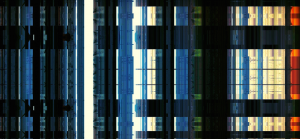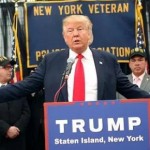Over the past week or so I have read through the page proofs of my next book, A Man Attested by God: The Human Jesus of the Synoptic Gospels. Here’s the short version of my argument: in Matthew, Mark, and Luke, Jesus is being depicted as an idealized human figure and not someone who is divine. 
The question of why I would think such a thing, and why I would write such a book, has come at me from many angles over the past 7+ years that I have been working on the project.
The short answer is simple: I think that this makes best sense of the stories as a whole and the particular passages of each Gospel.
But I realized that there is more to it as well. It has to do with a larger theological posture. It has to do with my own story.
Story and Revelation
When I first started getting into theology scripture was like a theological puzzle box. Inside were all these pieces that had been deposited over time, and our job was to figure out how they all fit together.
The pieces didn’t all show up at once, of course. This means that the history of God’s people is a history of revelation. It is a history of God giving a little piece of evidence about what is True here, and a little piece of evidence about what is True over there. People who come along later have a better idea of what the final picture is because we have more pieces.
The cultural contexts of the various Bible books was more or less irrelevant. Well, it was important, but only to let us know how to decode the timeless truth that fit into the biblical system of doctrine.
When I went to seminary the seed of profound change was sown by the “biblical theology” project that my professors were working on. It started shifting my understanding of the biblical story. No longer was this the “history of revelation”–a gradual beaming down to earth of bits of timeless truth. No longer was this a gradual disclosure of what is always true.
Instead, the story itself held the identity of God and of God’s people. The story with all of its twists and turns. With all of its dead ends. With God’s plans being thwarted and renewed. The story with human reflections and expectations and beliefs and hopes—not all of which agree with each other.
In a profound sense, the story itself became the thing, rather than functioning as a cypher for the God who stood behind the thing.
Jesus: Human and/or Divine
I realized as I was doing my last read-through of my book that this is precisely the change in posture that makes a divine Jesus so unsatisfying to me in the Synoptic Gospels. 
It’s not that Jesus there is depicted in ways that contradict or are poised to deny his divinity. It’s just that his divinity is not part of the story (contrast John).
If Jesus in these books is supposed to be divine, then what that means is that we have stories that otherwise appear to be about a specially endowed prophet, but which at two or three points pull back the curtain to disclose that the story unfolding on earth isn’t really what matters. What matters is the way that the story functions as a cypher for the God who stands behind the thing, or else, just beneath the skin.
If Jesus in these stories is divine, then the story is a story of hidden revelation, a story whose job it is to drop some surprising fact about God, in this case, God the Son, into our Bibles.
This makes pointless the stories that these Synoptic Gospel writers actually told. The point of reading these books then becomes disregarding the narrative we have and looking for hidden signs that the Jesus who appears to everyone else to be human is, actually, God.
I see the arguments about a divine Jesus in these books to embrace a reading strategy roughly akin to deploying the statement “God is not a man that he should lie or change his mind” as a reason to reread stories where God does actually change God’s mind and claim that it only appears that God changed (from a human point of view).
It is a reading strategy that demands a unity of theology that scripture cannot provide. It is a strategy that does not allow the stories actually told to stand on their own, but presses them into service of disclosing the kind of transcendent, eternal Truth that we demand.
Reading the Jesus Story
My lingering question for those who see a divine Christology in, say, Mark, is How does this function in the story?
In Mark’s Gospel are the characters supposed to believe in Jesus’s divinity? Is Jesus’s divinity supposed to be the power behind his actions? Is it supposed to blow up the OT way of imagining that God is with God’s people to save? If so, it is peculiar that none of these things are part of the story. Sure, we can bring them in, but is this the kind of revelation the story is poised to make?
It seems to me that there is quite a different mystery at work.
That mystery is the one that Jesus discloses, but that those around him are too blind to see.
It is the mystery that the Messiah empowered by God to exercise God’s reign upon the earth is going to establish God’s eternal kingdom and come into his own eternal throne by laying down his life and submitting himself to death on the cross.
This is the story that all three Gospel writers actually tell. And I think we should allow it to be enough.
Photo: “Parallel Revelations” (cropped) © Charles Kremenak | flickr | CC 2.0












